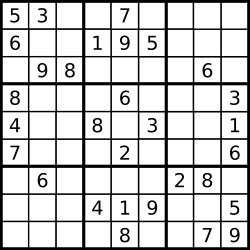Implement strStr().
Returns a pointer to the first occurrence of needle in haystack, or null if needle is not part of haystack.
Solution:
We first preprocess the needle, in such a way that we obtain the equivalent states, for instance:a a b a a b c 0 0 1 0 1 2 3That means that if we are have found aabaab, we have also found aab. When we process the haystack, when we arrive to a state that we cannot go on, we change to its previous equivalent state.
class Solution:
# @param haystack, a string
# @param needle, a string
# @return a string or None
def strStr(self, haystack, needle):
if len(needle)==0:
return haystack
equivalentState=[0]
previousState = 0;
for i in range(1,len(needle)):
equivalentState.append(previousState)
if needle[previousState] == needle [i]:
previousState += 1
else:
previousState = 0
position = 0
state = 0
while position < len(haystack):
if haystack[position] == needle[state]:
position += 1
state += 1
if state == len(needle):
return haystack[position-state:]
else:
if state == 0:
position +=1
else:
state = equivalentState[state]
return None

